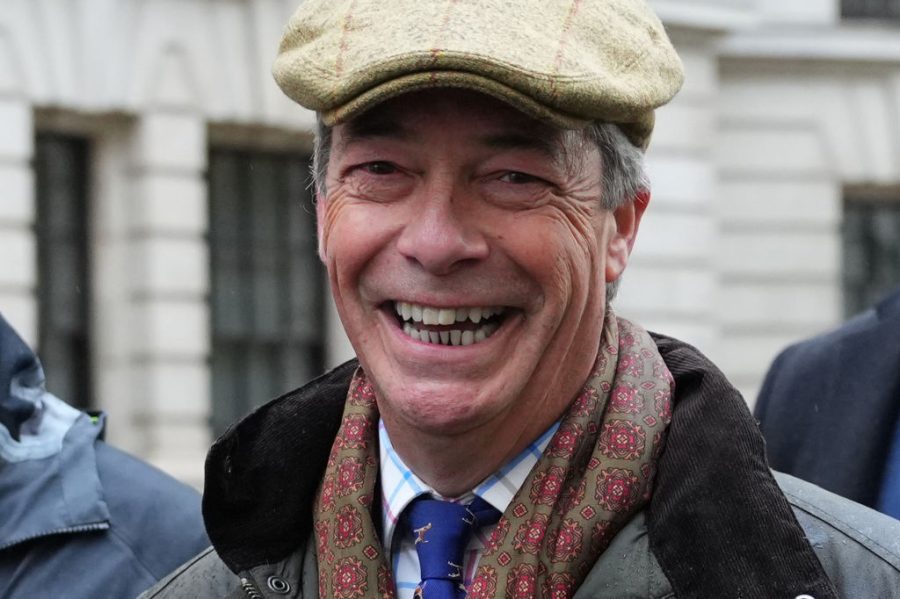Dear Nigel Farage,
We haven’t met, but I have a great idea for you. I head the Zoological Society of London. We’re a conservation charity, not party political but dedicated to protecting wildlife. You might approve – we’re a venerable national institution, 200 years old next year and still proud of our royal connections (though so is the RNLI, and you’ve gone off them).
Anyway, here’s the idea: go big on nature. Make protecting Britain’s natural heritage one of your things. Outflank the government on bats and badgers. Become Swampy in red trousers. It makes sense in all sorts of ways.
What could be more conservative than protecting the landscapes and wildlife that define our identity?
Politics first: nature is popular. Millions of voters are members of the National Trust, the RSPB and the Wildlife Trusts. Nine out of ten British adults say that they feel a responsibility to look after nature. Protecting nature is not a niche issue; it is a deeply held conviction across the electorate.
You’re not a great fan of the overseas aid budget, but guess which bit of it consistently polls as the most popular? Yep, the bit that protects nature around the world.
It’s not just the avocado toast-eating wokerati like me who care about nature. In a recent poll over two-thirds of your own voters agreed that a law should be passed significantly increasing the area of protected woodland and wildlife habitats. Another one found that almost half of Conservative voters believe the government isn’t doing enough to safeguard nature.
But it goes deeper than that. At the heart of your appeal is the notion of a threatened sense of identity and nationhood and little evokes that sense of identity more than the countryside. Ask an Englishman to close his eyes and think of England and he will see a meadow and an oak tree. From the Highlands to the South Downs, our landscapes are etched into our collective consciousness, a defining source of our quiet national pride. This isn’t sentimentality; it’s a profound connection to place, to history and to identity.
Conservatism, at its heart, is about preserving what is good, what has stood the test of time, what connects us to the past and binds us to the future. The destruction of nature is a radical act, a rupture with tradition, an irreversible loss of something precious. What could be more conservative than protecting the landscapes and wildlife that define our identity?
It is no coincidence that the early conservation movements drew heavily from those who valued tradition, stewardship, and the preservation of national character. Teddy Roosevelt was a titan of conservation, setting up many of America’s national parks. In Britain, the 11th Duke of Bedford championed wildlife protection in the late 19th and early 20th centuries long before it became fashionable and was president of my organisation, the Zoological Society of London, for 36 years. Their motivation was an appreciation for their country’s natural heritage and a sense of duty to pass it on intact.
There is even a Brexit angle. Thanks to you separating us from Brussels, Britain now has the opportunity to forge its own path to combine the protection of nature with the production of food, rather than remain in a system of subsidies designed for industrial-scale French farms. The UK can let our own farmers look after the countryside, understanding that they are often the best stewards of the land. Empowering them, rather than dictating to them, to manage their land in a way that benefits both production and nature is a quintessentially conservative approach.
I think this is why that other towering figure of the humorous right, Jeremy Clarkson, has hit such a chord with his everyday story of country folk. Clarkson’s Farm is more than just a reality show; it is a modern parable about how we can live alongside nature that ought to appeal directly to your base.
Going big on nature should appeal to your inner economic hawk. You like successful businesses, and businesses are now seriously worried about biodiversity loss. 80 per cent now say they regard it as a critical threat. Damage to nature affects the whole economy, from pharmaceutical companies, which find new drugs in nature, to fashion, which depends on nature for their supply chains, to food, where cocoa prices have been put up because deforestation and pollinator decline have reduced yields.
For free marketeers like you, the good news is that progress can be made in protecting nature simply by removing the subsidies that prop up uneconomic industries. Across the world, governments are subverting the market by treating nature as a limitless free good and pumping money into dying or ought-to-be-dead activities like the floating fish factories that are bottom-trawling the oceans. Nature will thrive when mechanisms are in place to ensure it has its actual economic value; the market will take care of the rest.
Your inner security hawk should also care. The Illegal Wildlife Trade, valued at £15 billion annually, funds transnational criminal networks linked to drug trafficking and terrorism. And damage to nature causes population shifts and instability. The 2010 floods in Pakistan – exacerbated by deforestation – displaced millions and fuelled Taliban recruitment.
You can make this issue your own. Boris Johnson really ‘got’ nature, and the UK led the world in this space under his leadership. His two successors didn’t. Keir Starmer hasn’t yet shown much interest in the issue. Rachel Reeves has picked a fight with bats and newts. There are bright spots: David Lammy is clearly passionate about nature, and Environment Secretary Steve Reed is playing a blinder with the water companies. But if you stood up for nature, you would tap into a rich seam of public anxiety.
I suspect we won’t agree on much, but we might agree on nature. You might remember one British politician telling the UN that humanity was conducting a ‘vast experiment’ with the planet and telling the world that ‘we must remember our duty to nature before it is too late’. It was your one-time hero, Margaret Thatcher. You could follow her lead. As the head of a conservation charity that is not on the left or right, but focussed single-mindedly on protecting nature, I hope you do.







Comments